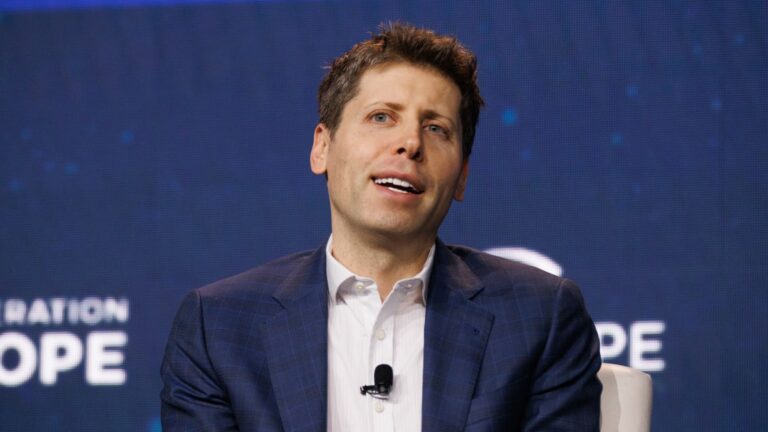
[ad_1]
OpenAI is back in action after its leadership tumult, debuting two product and service launches on Wednesday: the GPT Store — OpenAI’s answer to the App Store, which allows users to list personalized chatbots, or GPTs, they’ve built for others to download — and ChatGPT Team, a new option for businesses.
ChatGPT Team, the smaller version of OpenAI’s Enterprise offering, is for businesses with fewer than 150 users, costing $25 per user per month paid annually, or $30 per month per user paid monthly. It includes a shared workspace and allows teams to build their own GPTs.
The new usage tier follows the rollout of ChatGPT Enterprise, which launched in August after less than a year of development and with more than 20 beta-tester companies including Block and Canva. The Enterprise plan includes access to GPT-4 with no usage caps, performance that’s up to two times faster than previous versions and API credits.
Chief Operating Officer Brad Lightcap told CNBC in August that Enterprise pricing would not be publicly announced and that “it will depend, for us, on every company’s use cases and size.”
As for the GPT Store, so far, community members have built three million GPTs, according to OpenAI, and it has approved a range of them for download in the GPT Store.
The Store includes a community leaderboard for popular downloads, and users can search by category, such as writing, lifestyle and education. The GPT builder revenue program will launch “soon,” according to OpenAI, and will pay U.S. GPT builders according to their tool’s user engagement numbers.
“What OpenAI is really in the business of selling is intelligence — and that, and intelligent agents, is really where it will trend over time,” CEO Sam Altman told reporters at OpenAI’s first in-person event in November.
As one of the hottest companies in tech, OpenAI’s moves underline its efforts to rapidly evolve its offerings in an effort to stay ahead of rivals such as Anthropic, Google and Meta in the artificial intelligence arms race. ChatGPT had about 100 million weekly active users as of November, according to OpenAI, and more than 92% of Fortune 500 companies use the platform.
Both ChatGPT Team and the GPT Store are new revenue drivers for the company that have been in the works for a while, but the GPT Store, at least, had been on hold until now due to Altman’s temporary ouster and the ensuing board shuffle that took place late last year.
In November, OpenAI’s nonprofit board argued that Altman “was not consistently candid in his communications with the board” as CEO, and his subsequent departure incited uproar from investors and employees alike, especially after Microsoft CEO Satya Nadella said Altman and OpenAI president Greg Brockman would lead a new AI lab under Microsoft. Employees threatened to walk out en masse, signing an open letter and commenting in support of Altman on social media, which led in part to a significant turnover of OpenAI’s board.
The leadership fracas ended with OpenAI announcing that Altman and Brockman would officially return to their previous roles, along with a new board that would include former Salesforce co-CEO Bret Taylor, former Treasury Secretary Larry Summers and Quora CEO Adam D’Angelo. Microsoft also obtained a nonvoting board observer position.
OpenAI’s tender offer, which would allow employees to sell shares in the startup to outside investors, remains on track despite the leadership tumult, and would value OpenAI at about $86 billion, according to people familiar with the matter.
The tender offer, led by Josh Kushner’s Thrive Capital, was jeopardized by Altman’s temporary ouster, but his return cleared the way for things to proceed. Employees reportedly had until Jan. 5 to decide whether to participate.
Don’t miss these stories from CNBC PRO:
[ad_2]